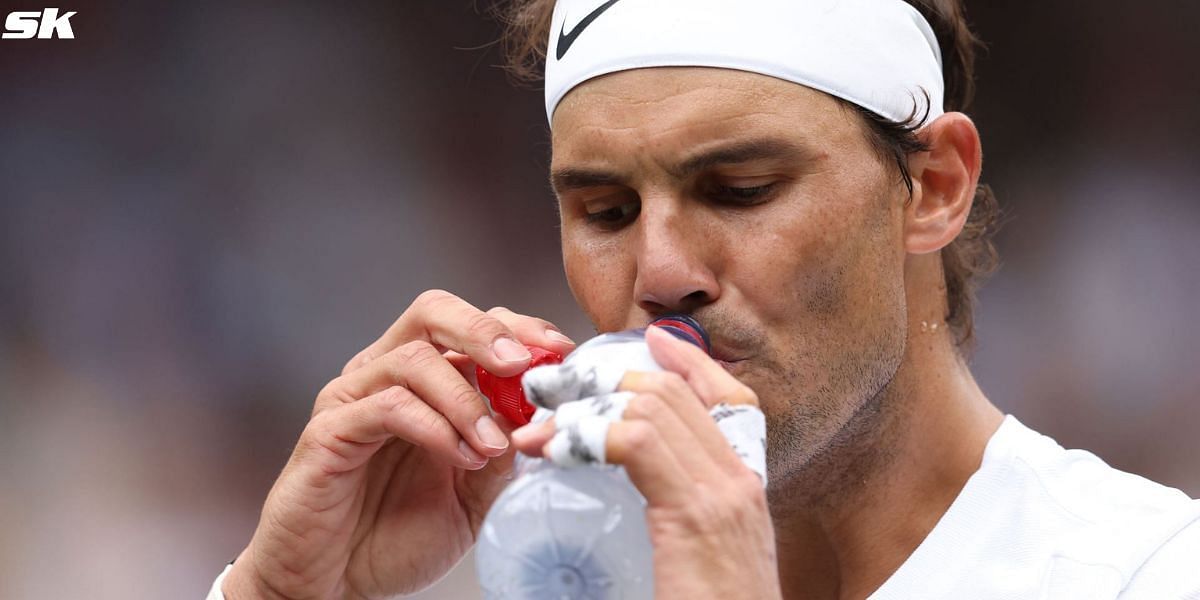
The last Grand Slam epic Rafael Nadal will ever play: Defying injury, retirement calls from his family and the laws of probability one last time
It was one of the most dramatic images of Rafael Nadal's late career. On Wimbledon's Centre Court, Sebastian Nadal was gesturing to his son to get out of there. The face of his sister, Maribel, showed deep anguish. ‘Rafa, please,’ was read on her lips.
His manager, Carlos Costa, was also signalling to him from a distance to end the suffering, to leave the match. It was the quarter-finals of 2022 Wimbledon against Taylor Fritz, and the Spaniard, in the middle of the second set after losing the first, showed the deep physical pain that a new injury was causing him.
This time, his abdominals tortured him. He called the tournament physiotherapist, got treated in the locker room and ignored the pleas from his box. He returned to the court to win that set and then came back from 2-sets-to-1. The run to the semi-finals after winning the fifth set super tiebreak at the All England Club was the last epic of so many in his career.
The North American himself, speaking to CLAY, explained what it was like to play against an injured Rafael Nadal.
"I felt that from the baseline, forehand, backhand, everything was normal. His mobility too. Maybe for a couple of games it seemed different, but in the fourth and fifth sets he was recovering balls that a lot of people normally wouldn't recover," said the 26-year-old.
(This feature was originally written for CLAY and has been reproduced in its entirety.)
It was on Nadal's serve where Fritz noticed differences, which oddly enough ended up hurting him rather than giving him an advantage:
"He started serving about 20 miles per hour slower, but I felt like I was returning better when he was serving harder, because it gave me more pace. When Rafa started to serve softer, I had to get more into the court and I also had to widen my return swing because I had less weight to work with. It was harder for me to return with power and depth when his serve was softer."
Nadal was in London for the first time in his life in the race for the Grand Slam. He had won the most unexpected of his major titles in Australia after that country scorned Djokovic, and four months later dominated for the 14th time at Roland Garros. But he missed the Wimbledon semi-final against Nick Kyrgios.
"It will probably be the most watched match of all time," said the Australian in the lead-up to the match that did not happen, before the 22-time Grand Slam champion announced his walkover.
After that episode, Nadal's collection of injuries eventually wiped him out. He won only four matches before returning to Melbourne to defend his title. There he suffered with his hip, and the uncertainty began as to how he would say goodbye to tennis. Until this October 10, through a video on his social networks, where he announced that his last dance will come in November, in the finals of the Davis Cup in Malaga.
Yes, he had a wonderful time at the Olympic Games in which he was close to fighting for the medals in the doubles alongside Alcaraz, after being the main star at the opening ceremony. But he also realized, precisely against Novak Djokovic, the opponent he faced most times, that he could not, or should not, continue being a professional tennis player.